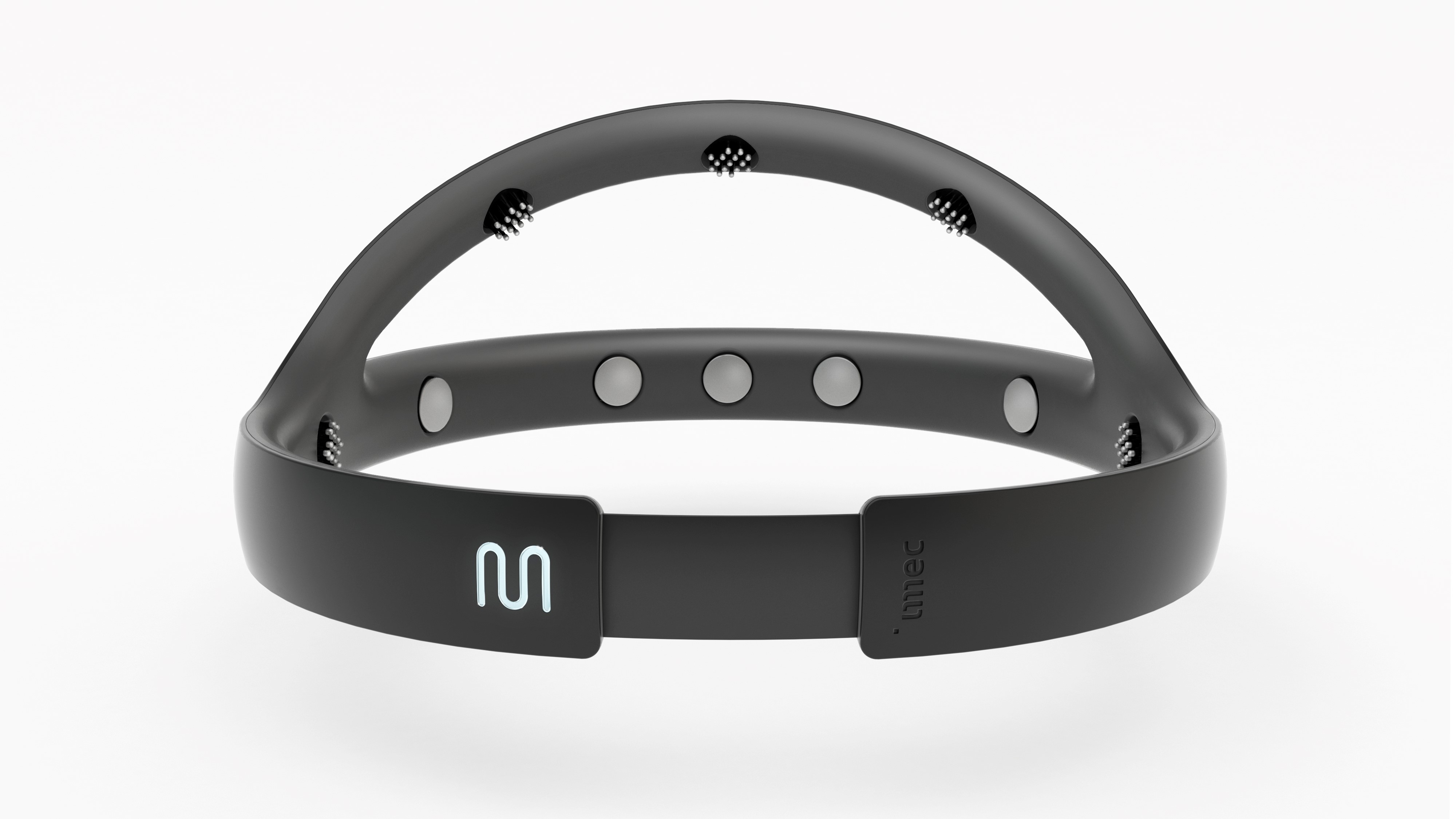At the International Consumer Electronics Show (CES) taking place in Las Vegas, Nev. Jan. 9-12, 2018, imec, the world-leading research and innovation hub in nano-electronics and digital technologies, and Holst Centre, a research center established by imec and TNO, will demonstrate a prototype of an electroencephalogram (EEG) headset that can measure emotions and cognitive processes in the brain. The headset is a major breakthrough in emotion measurement for therapeutic, learning and gaming applications.
Traditionally, EEG brain scans are used to diagnose medical conditions such as epilepsy or sleep disorders. More recently, EEG brain scans have been introduced as a way to detect emotions which opens doors beyond the medical field. Researchers are looking into e-learning applications, and developers of virtual games are exploring the possibilities of emotion-based e-gaming. Such application domains require real-time emotion detection, which can be achieved through wireless EEG headsets.
Challenges in EEG electrode placement, and user comfort for long term usage are the key deterrents in using EEG signals beyond clinical purpose. Imec’s EEG headset combines user comfort with its cutting-edge low-power technology, active high-quality EEG dry-electrodes from Datwyler and advanced software to accurately monitor in real time frontal EEG signals that are related to emotional state. The system contains a headphone jack and is Bluetooth (r) compatible for music streaming. With the integration of music playback, the system can not only measure, but also influence the emotions of the person that is wearing the headset. With the help of Artificial Intelligence our headset can learn the personal musical preferences of the wearer and compose and playback, in real-time, music that fits his preferences and influences his emotions to achieve the wearers’ desired emotional state. The machine learning algorithms to achieve this were developed by Osaka University under the Center of Innovation (COI) Program integrating personalized emotion classification and real-time music composition into the system.
“Imec’s extensive expertise in this domain is a result of nearly a decade of work in creating circuits and compact systems for wearable EEG monitoring,” stated Chris Van Hoof, senior director connected health solutions. “Leveraging the expertise of our project partners: Osaka University and Datwyler, we could develop a new type of EEG headset that will be vital for clinical research on emotion estimation in therapeutic environments or for neurofeedback through aural stimulation for relaxation, cognitive enhancement and memory improvement purposes. Since the headset is pre-fitted with electrodes, this eliminates the need for expertise in electrode placement and can be used on a regular basis with minimal setup time. We’re excited about how the headset can be leveraged in the gaming community to develop enhanced and more immersive games.”
“Our expertise in machine learning and personalized emotion classification helped us to build a unique EEG system that links music that is offered through the headphones with emotional changes,” stated professor Masayuki Numao from the Institute of Scientific and Industrial Research (ISIR) ,Osaka University. “We have achieved this Brain Melody® system by combining model-based emotion recognition with techniques for real-time music composition and musical expression.”
“We are excited to be part of imec’s endeavour in creating the paradigm shift in wearable EEG monitoring,” says Ronny Vrijens, Head of New Product Development at Datwyler Pharma Packaging International. “Together with imec, we have significantly improved the reliability, EEG signal quality, and ease of integration of the dry electrodes used in this new EEG headset.”























